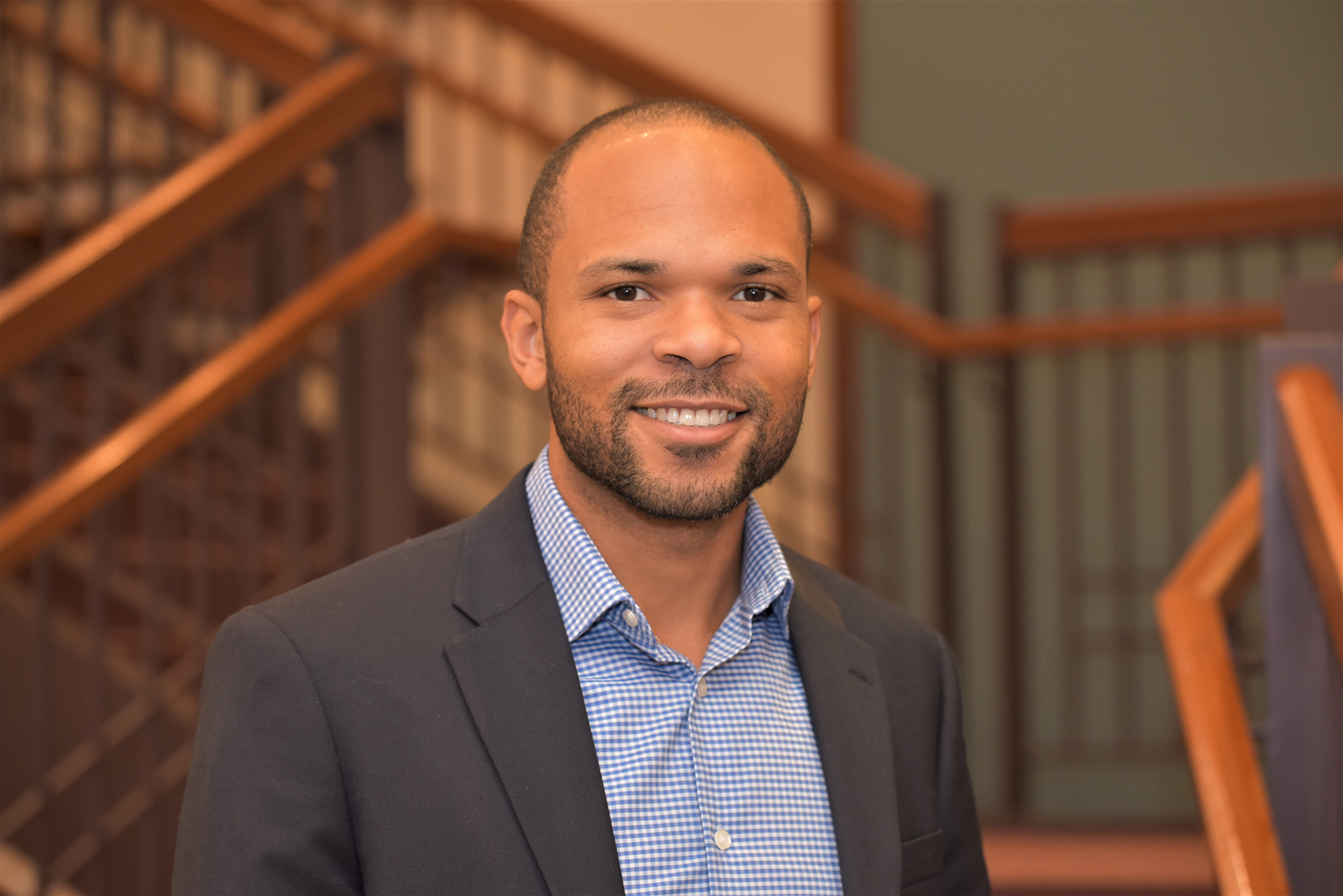 Neal Outland
Neal Outland
Visiting Professor Neal Outland explores the psychology of teamwork in a range of settings, from the workplace to outer space. Outland, the winner of a 2017 Illinois Space Grant Fellowship, has worked on two NASA-funded projects with DePaul University faculty to understand the individual qualities necessary of future astronauts.
This fall he joined the faculty of the Department of Management & Entrepreneurship at the Driehaus College of Business as he completes his PhD in industrial-organizational psychology at DePaul. He teaches classes in effective and ethical management and is focusing his research on how teams acquire, share and use knowledge.
Here, Outland talks about why it is important for business students to understand psychology.
What attracted you to the world of psychology?
I studied psychology because I wanted to answer the big questions, what makes people tick and why do people do the things that they do? One of the big drivers for me wanting to get those answers stemmed from when I played competitive chess when I was young. When I would win a game, I would wonder why my opponent made mistakes. What were they thinking? Why would they make those bad moves? Chess was a solitary sport, and my interest in psychology grew as I engaged in more team activities. I studied psychology at Loyola University New Orleans and ran on the track team. During my studies, I started bringing my classroom learning into the coaching side of the track team. I wanted to make sure that our athletes were motivated, performing well and growing their athletic skills.
What brought you to DePaul University?
The more I studied psychology and carried some psychology concepts onto the track team, the more I realized that I wanted to study industrial and organizational psychology. I applied to several schools, but the one that stood out the most was DePaul. In the (industrial-organizational PhD) program, under (Professor) Suzanne Bell, I studied team composition, specifically how personality factors and other individual differences influence how teams work.
Why did you start teaching in the Kellstadt Graduate School of Business?
In DePaul’s psychology department, I started teaching research methods and the introduction to the psychology of business course. Because most of my research interests directly inform or lean more towards core human resources and organizational behavior topics, it made sense that I also teach at the business school. Working with business school students is a lot of fun because they are really engaged. Business students want practical applications that they can take and utilize in the workforce. I teach them that psychology has practicality in the business world and is important when making even the smallest decision.
Why is understanding psychology important for the business world?
Psychology helps us understand the conditions that influence individuals’ behavior. It helps us answer questions such as what can I do to make my workplace high performing while ensuring everyone is satisfied with their jobs? This is something many companies and managers struggle with and we see now an increase in the use of psychological research to answer these questions. Basically, for a company to perform its best, its employees need to be at theirs. Psychology provides a lot of insight into how to ensure conditions are set for an organization’s workforce to perform optimally.
How do you bring your psychology experience into the classroom?
My current research is about the organizational effectiveness of teams. It is inspired by NASA research that I worked on while in DePaul’s Psychology Department figuring out how shared understanding develops in teams.
Specifically, my research looks at what we know about people—in terms of their personality, the situations they are in and other people they interact with—and how we can predict if they will coordinate well within a team dynamic. In my courses, I teach students through simulations and activities that allow them to see the differences between what naturally occurs in companies and how things can be done better. Particularly, I bring in a lot of my research to show what the pitfalls are when forming teams and accomplishing goals. This helps students know what to look for when you are a team member or a team leader and what you must do help your team develop and coordinate to accomplish your goals.
Interested in developing your leadership? Learn more about
majoring in management and
graduate programs in business at DePaul.